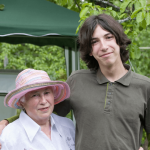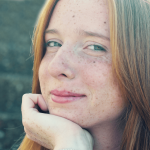WYS services are driven by the client and what they want to accomplish through therapy, so we ask our clients frequently if the sessions are going well and if the child and/or family feel therapy is progressing.
One way we ask about this is by using a measure called the Youth Outcome Questionnaire (YOQ). The questionnaire is administered every few months to check in on how the client and family rate the severity of current symptoms and behaviors and how they feel about the therapy relationship.
Taking A Client-Driven Approach
Peter was struggling with changes to his routine, limited social skills and difficulty with transitions when he first came to WYS. He was challenged by consistently following directions and rules, and would avoid social situations. When nervous he’d chew on his clothes when nervous and was fearful of being negatively evaluated by other kids. All of these things added up were impairing both his social and academic functioning.
Recently the YOQ was given to Peter which prompted a discussion about his current progress in treatment and what the therapist could do to assist him in further progress. Peter reported that while he was making some progress, he felt that he’d make more progress if he was able to choose the activity based on what his needs were for that specific week. This discussion was really helpful because up to this point, the therapist had been guessing at what activities would engage Peter and capture his interest in their sessions.
Also, Peter used the opportunity to share that he had become upset in a recent group therapy session because someone said something that hurt his feelings. His therapist used active listening in order to understand Peter’s struggles with managing his emotions when this happened.
Then, the therapist helped Peter brainstorm about how they could work together on his reaction when his feelings are hurt and that resulted in the two of them working together on a therapeutic activity that addressed Peter’s care plan goal of helping his social skills.
At the end of the session, Peter reported that the activity really helped him regulate his emotions. He was excited to come back for his next session too, because he knew that he’d be able to direct his session the way he wanted them to be.
A Joint Effort
Peter’s story is a great example of how WYS staff work with clients to collaborate on their treatment and really listen to their needs. This open communication will help Peter succeed with his treatment goals and work together with his therapist!














